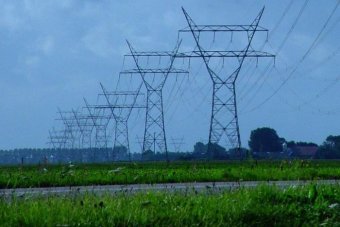ERM Power, Alinta Energy opt for penalties rather than meeting renewable energy requirements
Updated
Electricity retailers ERM Power and Alinta Energy have opted to pay more than $130 million in penalties, rather than meeting their renewable energy obligations, raising fresh questions about the operation of the Renewable Energy Target (RET).
Key points:
- RET compliance rate falls from 99pc to 94 pc in 2016
- 15 electricity retailers failed to surrender correct number of renewable energy certificates
- Eight retailers failed to surrender a single certificate, copping $8m in penalties
The Clean Energy Regulator (CER), which administers the RET, has released data showing the compliance rate for the scheme has fallen from more than 99 per cent in previous years to 94 per cent in 2016.
According to the data, 15 retailers paid a shortfall penalty last year for failing to surrender the correct number of renewable energy certificates, but ERM's fee was by far the highest at $123.5 million, followed by Alinta Energy, which paid $7.9 million.
Eight of those retailers, including QEnergy Limited and Next Business Energy, completely failed to meet their obligations, not surrendering a single certificate, and incurred more than $8 million in penalties combined.
CER chairwoman Chloe Munroe said the fall in the compliance rate did not detract from the overall effectiveness of the scheme but said it was "disappointing" some retailers had chosen to pay the shortfall penalty.
She remained hopeful the retailers would, "demonstrate their commitment to the RET" and make up for the shortfall by sourcing more renewable energy than required in future.
"It is possible for entities to make good on their position by surrendering the missing number of certificates at a later date," she said.
ERM announced it planned to surrender its outstanding 2016 certificates over the next there years, having signed two new renewable energy generation projects.
Its chief executive, Jon Stretch, said the company supported the RET and was taking advantage of the flexibility built into the scheme.
The RET is a mandated target to ensure 23.5 per cent of Australia's energy comes from renewable sources by 2020.
Under the scheme, electricity retailers are required by law to purchase a certain number of renewable energy certificates from power stations each year and surrender them to the CER. If they don't, they must pay a penalty of $65 for each certificate they do not surrender.
Last year, the price of certificates surged to about $90 — up from $35 in 2015 — prompting the decision by some retailers to pay the shortfall penalty rather than meet their obligation under the scheme.
The CER previously vowed to "fully investigate" those companies, accusing them of undermining the RET, however it conceded the practice was legal.
Topics: electricity-energy-and-utilities, industry, business-economics-and-finance, environment, climate-change, australia
First posted









